Humans
Sign up for our newsletter
We summarize the week's scientific breakthroughs every Thursday.
-
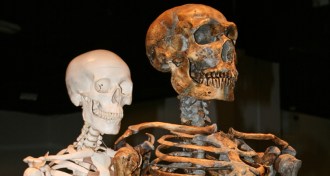 Genetics
GeneticsGene activity sets humans apart from extinct hominids
Differences in gene activity caused by DNA methylation distinguish modern people from Neandertals and Denisovans.
-
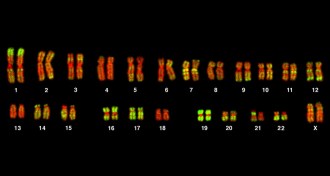 Genetics
GeneticsDown’s syndrome goes beyond chromosome 21
A genetic analysis suggests that the DNA changes linked to Down's syndrome happen on all chromosomes, not just the 21st.
-
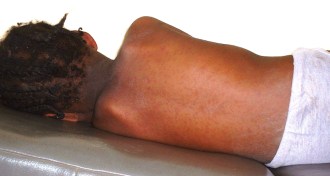 Health & Medicine
Health & MedicinePossible measles drug tests well in animals
Compound that saves ferrets from viral infection might someday lead to measles treatment.
By Nathan Seppa -
 Health & Medicine
Health & MedicineWhat’s going on in the mind of a Skyping baby?
By studying how young children respond to video calls, scientists hope to understand the role of new technology.
-
 Psychology
PsychologyThat beard is only hot because it’s not cool
There’s more to facial hair than whether you can grow it. A new study shows that attractiveness increases when your style of facial hair is rare.
-
 Health & Medicine
Health & MedicineTriclosan aids nasal invasions by staph
The antimicrobial compound triclosan, commonly found in soaps and toothpaste, may help Staphylococcus aureus stick around.
By Beth Mole -
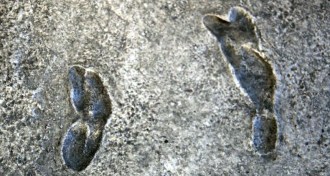 Anthropology
AnthropologyLaetoli footprints show signs of unusual gait
Contrary to prior study, 3.6-million-year-old hominids in Tanzania did not walk like humans.
By Bruce Bower -
 Anthropology
AnthropologyEarliest case of a battered child found in Greece
A baby living in Athens around 2,200 years ago was probably beaten to death.
By Bruce Bower -
 Anthropology
AnthropologyAncient boy died surprisingly young
Imaging analysis reduces age of Australopithecus sediba youngster from 9 to 7.5 years old.
By Bruce Bower -
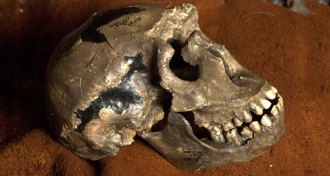 Anthropology
AnthropologyTurkana Boy sparks row over Homo erectus height
Estimating the adult height and weight of an ancient youth from his skeleton has proven tricky.
By Bruce Bower -
 Health & Medicine
Health & MedicineHepatitis C treatment appears extremely effective
A mix of four medications has provided the most effective way to date to counter the hepatitis C virus in humans.
-
 Computing
ComputingApp could cut jet lag short
A new app calculates lighting schedules to help travelers adjust quickly to new time zones.
By Meghan Rosen